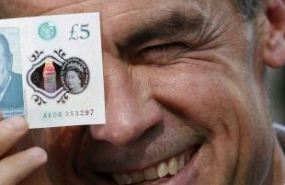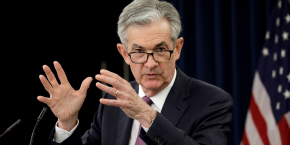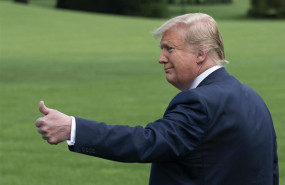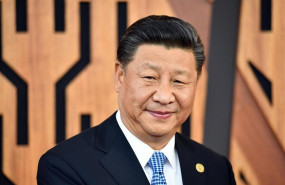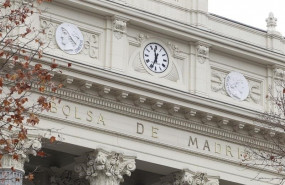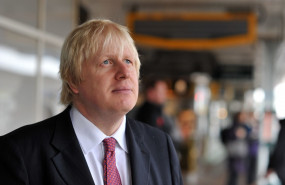The Ibex (-0.25%) doesn't rise alongside Europe due to the falls in the banks
Sabadell falls 4.5%, Bankia 3%, Caixabank and Bankinter 2%
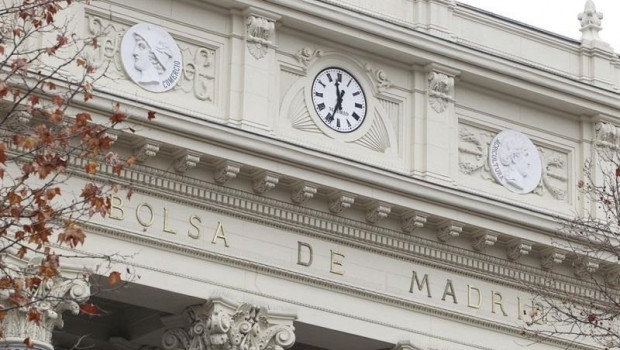
The Ibex 35 diverges its path from Europe, closing this Thursday with a shy fall of 0,25% (9,208 points) punished by the banking sector. Five of the six banks of the Ibex head the losses of the selective after the uncertainty left by the Fed this Wednesday and Guindos' speech this Thursday, vice-president of the BCE, in which he claims that "the objective of the monetary policy is not the yield of the bank ".
IBEX 35
11.473,900
-
0,33%38,20
- Max: 11.485,70
- Min: 11.446,20
- Volume: -
- MM 200 : 11.299,24
The best values of the Spanish selective this Thursday were IAG and Siemens Gamesa, with increases of 2.4% and 2% respectively. The other side of the coin have been banks, the most punished Sabadell which has fallen by 4.5% but Bankia has also lost 3.4%, Caixabank and Bankinter have lost more than 2%. While BBVA and Santander close with falls of over 1%.
The rest of European stock exchanges closed in green (Cac 40: + 0.4%, Dax 30: + 0.45%, Ftse 100: + 0.4%, Ftse Mib: + 0.67%) after a marked session the shyness and indecision and after the moderate increases of Wall Street yesterday, which closed another session near historical highs.
Back to the Ibex and with an eye on the graphics, the selective closes the session "without major movements", with European stock markets rising on average around 0.5%. "Little by little and without realizing it, we have already attacked the important resistances that it presents at the annual highs, which were reached at the end of April / beginning of May," says José María Rodríguez, an analyst at Bolamanía.com.
"And we must wait: around 4% of the homologous levels, because of the usual ones, for the banks". While it is true that we have not drilled any support, "what worries me is what we will do or furthermore, how we will defend ourselves when the European and Wall Street variable income decides to take a well-deserved break, a small pause along the way," he explains.
"It is true that as we have been commenting in recent days, that we have an important resistance in the 9.335 points and above it would confirm, in theory, an inverted 'head and shoulders' that should send us to the annual highs (9.588). Either things change a lot or I'm afraid we'll have to leave it for the better moment, because without the banks it's as if we lack one of the two big engines of the Ibex "he explains.
The other engine is made up of Inditex and the electric sector. "And the first one is still lateral." Therefore, "it seems difficult, almost impossible, to recover the lost ground compared to our European neighbors". The Ibex rises 8% in the year vs. 17% of the Cac 40, Dax or even of the Italian FTSE MIB. "Even Italy, which has significant macro problems, doubles the profitability of our selective sector, and all because of the banks," he concludes.
TRADE WAR
The attention of investors continues in the trade war between China and the US. Chinese state media have said on Thursday that it is unlikely that the upcoming trade talks between the leaders of China and the United States will immediately resolve the main disagreements between the two sides, but could begin a new phase in the negotiations.
The newspaper 'Global Times', which has said that China had a telephone conversation at the request of the United States, has indicated that Beijing had sent a clear signal to Washington that "China cannot be intimidated."
The Asian stock markets believe that negotiations between the two leading world powers will enter a new phase and have prolonged Wednesday's gains by drawing another session of increases. Compounds from Shenzhen and Shanghai are up 2% on average, while the Nikkei is up 0.61%.
BORIS JOHNSON AND CENTRAL BANKS
In the currency market, the dollar operates on the defensive because of signals from the Fed that there will be interest rate cuts and backs down in front of its rivals. The euro trades this Thursday over $ 1.13 and rising by 0.7%. The pound has also stretched its rebound from five-month lows and rises above $ 1.27, a gain of more than 1.5%.
The currency is still waiting to know who will be the successor of the former prime minister, Theresa May. Former Foreign Minister Boris Johnson has scored his third victory on Wednesday in the internal process to appoint the new head of the Conservatives. Still in the United Kingdom and in a widely expected decision, the Monetary Policy Committee of the Bank of England (MPC) has maintained, in June, interest rates unchanged at 0.75%.
The vote of the members of the committee has been unanimous. Also, the entity has decided to maintain the purchases of assets in 435bn pounds (489bn euros) and has voted together for maintaining in 10bn pounds sterling (11,243 million euros) the emission of reserves of the central bank to finance the purchase of corporate debt.
In the statement that came with the decision of the entity, the central bank has announced that it has lowered its growth forecasts in the second quarter to 0%, from the 0.2% expected in May. This is because "the downside risks to growth have increased since last month, as tensions in world trade intensify, and the perception of the likelihood that Brexit is resolved without agreement increases."
Still in the field of central banks, Norway's central bank is resulting to be the only monetary supervisor with a 'hawkish' perspective in an environment of accommodating turn of central banks around the world. As was widely expected, the Scandinavian regulator has raised the price of money by a quarter of a point to 1.25% and has left the door open for another rate increase this year.
This rise is 0.25% that the Norges Bank raised in March and is added to another previous one in August last year, which means that in 10 months, the central bank has raised the rates by 0.75%. In turn, this morning the Bank of Japan has also announced its monetary policy decision for the sixth month of the year. As planned, it has not moved and has joined the Fed in its warning about global risks.
For its part, in the commodities market, oil stands out for its increases after the Fed's announcement and after Iran has shot down a US drone spy in the Strait of Hormuz. The barrel of West Texas, reference in the US, advances 3% and exceeds 55 dollars. For its part, the Brent, reference in Europe, rises 2.5% and beats 63 dollars per barrel.
